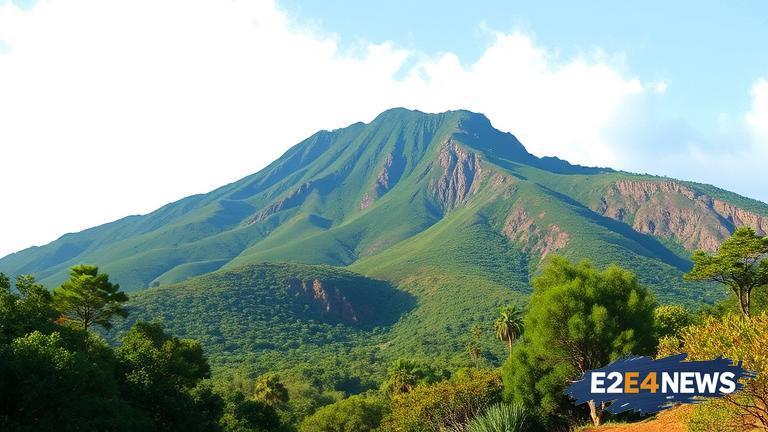Mount Mulanje, located in the southern region of Malawi, has been officially recognized as a UNESCO World Heritage Site. This prestigious designation acknowledges the mountain’s unique natural and cultural features, which make it an outstanding example of the country’s rich heritage. The mountain stands at an impressive 3,000 meters above sea level and is known for its diverse flora and fauna, including several endemic species. The surrounding landscape is also home to a variety of traditional villages, where local communities have lived for centuries. The UNESCO World Heritage Committee praised Mount Mulanje for its exceptional natural beauty, as well as its cultural significance, which is reflected in the many myths and legends surrounding the mountain. The committee also recognized the efforts of the Malawian government and local communities to conserve and protect the mountain’s natural and cultural resources. This recognition is expected to boost tourism in the region, creating new economic opportunities for local communities. However, it also poses challenges, as the increased tourism may put pressure on the mountain’s fragile ecosystem. To address these concerns, the Malawian government has pledged to implement sustainable tourism practices and to work closely with local communities to ensure that the benefits of tourism are shared equitably. The UNESCO World Heritage designation is also expected to raise awareness about the importance of conservation and the need to protect the mountain’s natural and cultural resources for future generations. Mount Mulanje is the first site in Malawi to be recognized as a UNESCO World Heritage Site, and it is hoped that this will pave the way for the recognition of other significant cultural and natural sites in the country. The Malawian government has expressed its gratitude to UNESCO for this recognition, which is seen as a major achievement for the country. The recognition of Mount Mulanje as a UNESCO World Heritage Site is a significant milestone in the country’s efforts to conserve and promote its cultural and natural heritage. It is also a testament to the country’s commitment to sustainable development and the protection of its unique natural and cultural resources. The UNESCO World Heritage designation is expected to have a positive impact on the local economy, as well as on the country’s reputation as a tourist destination. Overall, the recognition of Mount Mulanje as a UNESCO World Heritage Site is a major achievement for Malawi, and it is hoped that it will contribute to the country’s sustainable development and the protection of its unique cultural and natural heritage.
